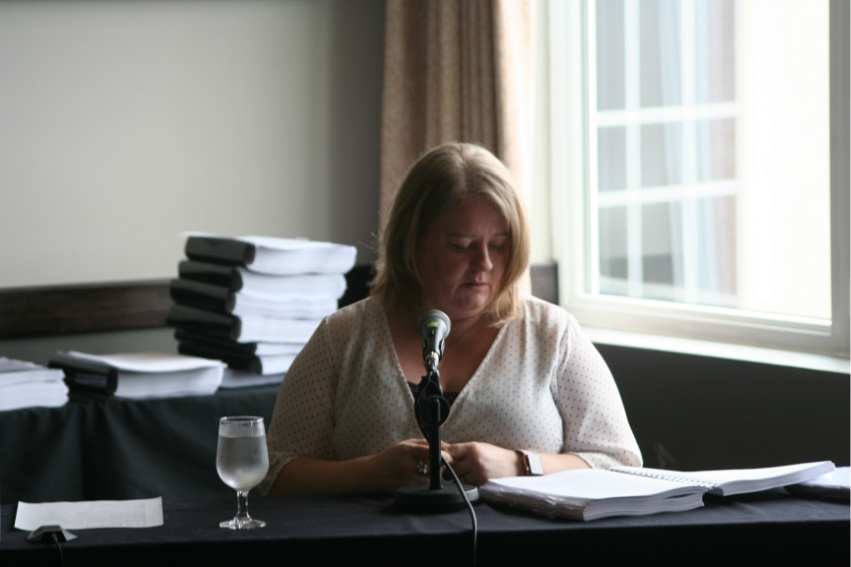KJIPUKTUK (Halifax) – Lynn Hartwell, the Community Services deputy minister, says efforts to offer more independence and community integration to Nova Scotians with disabilities are moving along at just the right speed.
“People have a right to be sceptical, but we’re doing new things now, and we have made commitments that were never made before. We have never said these things quite this firmly before,” said Hartwell. “Maybe not as fast as people would like, but we are committed.”

Hartwell testified all day today at the human rights enquiry into the lack of community living options for people living with disabilities.
The questions, softly lobbed at the senior bureaucrat by government lawyer (and former the Coast best activist) Kevin Kindred were all easy ones.
Many questions focused on the so-called disability roadmap, a plan to phase out large institutions for people who live with developmental disabilities and to make their care more personalized. The roadmap was launched in 2013, and critics have argued that by now it’s just another report collecting dust.
Not so, argued Hartwell. But the lack of progress was apparent.
For instance, at one time the government committed to the creation of eight new small option homes, as a start. How is that going?
“In terms of actually build small options homes, we have opened one, which was not a new build. We have two other homes (in the planning stage) where the families involved are making some final decisions, one in Claire and one in Isle Madame. The five remaining ones are still outstanding,” said Hartwell. “In terms of creating new small option homes, we’re tempered by doing it right.”
How about the commitment that large facilities will be closed down?
“There is still an over-reliance on these facilities, and the desire is to phase these out. But we need to create alternatives before we close them down. We have built relationships with these facilities, so they can be part of our efforts,” Hartwell explained.
How about empowering individuals and allowing them to design their own paths?
“We have supported changes in the Competent Persons Act, but on the ground not much has yet changed. This is an area where lots of work still needs to be done,” she said.
Individualized funding?
Hartwell: “This is something we really want to get to. It is something we absolutely want to work towards.”
All this left Barb Horner frustrated. Horner, who attended today’s session, is a member of the Disability Rights Coalition, a formal party at the enquiry.
“The roadmap was released over four years ago, and from what I understood today the progress that has been made so far is just internal to the department,” Horner told the Nova Scotia Advocate.
“We also heard about the department’s cooperation with the existing institutions, while we too have asked continually to work in partnership with Community Services, but to no avail,” said Horner.
Horner also had some general observations about the nature of the solutions the department appears to pursue.
“Community Services seems to make it much more difficult than it needs to be. There seems to be this notion that we have to create this entirely new world for people with disabilities, to enable them to live in community. Dr. Catherine Frazee talked earlier about the notion of ableism. I believe this very much speaks to the department’s approach,” Horner said.
“Who are we to say what people need? Things will fall in place if we do person-centered planning and allow people to articulate their desires,” Horner said.
Tomorrow, lawyers working on behalf the complainants will get to ask their questions. That session, at the Chocolate Lake Best Western in Halifax, will start at 8:45 AM, a little earlier than usual.
If you can, please support the Nova Scotia Advocate so that it can continue to cover issues such as poverty, racism, exclusion, workers’ rights and the environment in Nova Scotia. A paywall is not an option, since it would exclude many readers who don’t have any disposable income at all. We rely entirely on one-time donations and a tiny but mighty group of dedicated monthly sustainers.
Subscribe to the Nova Scotia Advocate weekly digest and never miss an article again.



